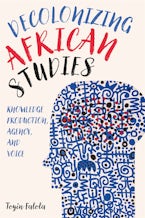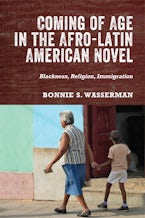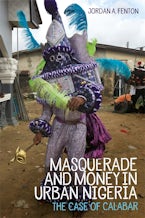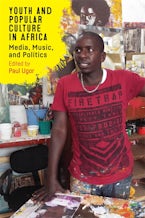
Title Details
230 Pages
22.8 x 15.2 cm
Series: Rochester Studies in African History and the Diaspora
Series Vol. Number:
56
Imprint: University of Rochester Press
Edward Wilmot Blyden and the Racial Nationalist Imagination
- Description
- Contents
- Author
- Reviews
A critical study of Edward Wilmot Blyden, whose voluminous writings laid the groundwork for some of the most important African and black diasporic thinkers of the twentieth century.
Edward Wilmot Blyden and the Racial Nationalist Imagination is a critical study of one of the most prolific and knowledgeable black-world intellectuals of the nineteenth and early twentieth centuries. Focusing on his writings, it shows the contradictions, ambiguities, complexities, and paradoxes in Blyden's powerful black racial nationalism. Blyden was a modernist who called upon African Americans to "uplift" Africa; yet he was a defender of Africa's culture and customs. He was the most sophisticated critic of Eurocentrism; yet he was an avid Anglophile. He was a Protestant who admired Islam's "civilizing" role in Africa. Blyden was the first black intellectual to advocate for the symbiosis of Africa's "triple heritage": indigenous, Islamic, and Western. His voluminous writings laid the groundwork for some of the most important ideas of African and black diasporic thinkers of the twentieth century, including Frantz Fanon, Amilcar Cabral, Chiekh Anta Diop, Leopold Sedar Senghor, Aimé Césaire, and Walter Rodney.
Though Blyden is often overlooked in the history of modern black thought, in this book, Teshale Tibebu brings him out of oblivion and engages the reader in an extended, systematic evaluation of his written works.
Teshale Tibebu is professor of history at Temple University. He is the author of The Making of Modern Ethiopia,1896-1974, Hegel and Anti-Semitism, and Hegel and the Third World: The Making of Eurocentrism in World History.
Edward Wilmot Blyden and the Racial Nationalist Imagination is a critical study of one of the most prolific and knowledgeable black-world intellectuals of the nineteenth and early twentieth centuries. Focusing on his writings, it shows the contradictions, ambiguities, complexities, and paradoxes in Blyden's powerful black racial nationalism. Blyden was a modernist who called upon African Americans to "uplift" Africa; yet he was a defender of Africa's culture and customs. He was the most sophisticated critic of Eurocentrism; yet he was an avid Anglophile. He was a Protestant who admired Islam's "civilizing" role in Africa. Blyden was the first black intellectual to advocate for the symbiosis of Africa's "triple heritage": indigenous, Islamic, and Western. His voluminous writings laid the groundwork for some of the most important ideas of African and black diasporic thinkers of the twentieth century, including Frantz Fanon, Amilcar Cabral, Chiekh Anta Diop, Leopold Sedar Senghor, Aimé Césaire, and Walter Rodney.
Though Blyden is often overlooked in the history of modern black thought, in this book, Teshale Tibebu brings him out of oblivion and engages the reader in an extended, systematic evaluation of his written works.
Teshale Tibebu is professor of history at Temple University. He is the author of The Making of Modern Ethiopia,1896-1974, Hegel and Anti-Semitism, and Hegel and the Third World: The Making of Eurocentrism in World History.
Introduction
Africa: Service, Suffering, and Subjection
The Critique of Eurocentrism
Ishmael in Africa: Black Protestant Islamophilia
The African American "Civilizing Mission"
The "Mulatto" Nemesis
Appraising the Colonial Enterprise
Epilogue: Post-Blydenian Reflections
Africa: Service, Suffering, and Subjection
The Critique of Eurocentrism
Ishmael in Africa: Black Protestant Islamophilia
The African American "Civilizing Mission"
The "Mulatto" Nemesis
Appraising the Colonial Enterprise
Epilogue: Post-Blydenian Reflections
"Selected as a CHOICE Outstanding Academic Title of 2013." .
"Teshale Tibebu is a remarkable historian of ideas, interested in Ethiopia as a touchstone of the ideological, philosophical, and emotional aspects of pan-Africanism. [This book] shows how the struggle between a great African thinker [Blyden] and Eurocentrist racism forms a point of origin for the liberating forces that arose after his day and that are still at work in the themes of postcolonialism." ÉTUDES LITTÉRAIRES AFRICAINES
"A classic example of intellectual history...this clearly written, jargon-free study will be the definitive history of [Blyden's] ideas for decades to come." CHOICE
Hardcover
9781580464284
December 2012
$105.00 / £90.00
Ebook (EPUB)
9781782045717
December 2012
$29.95 / £24.99
Ebook (EPDF)
9781580467902
December 2012
$29.95 / £24.99
Title Details
230 Pages
2.28 x 1.52 cm
Series: Rochester Studies in African History and the Diaspora
Series Vol. Number:
56
Imprint: University of Rochester Press














